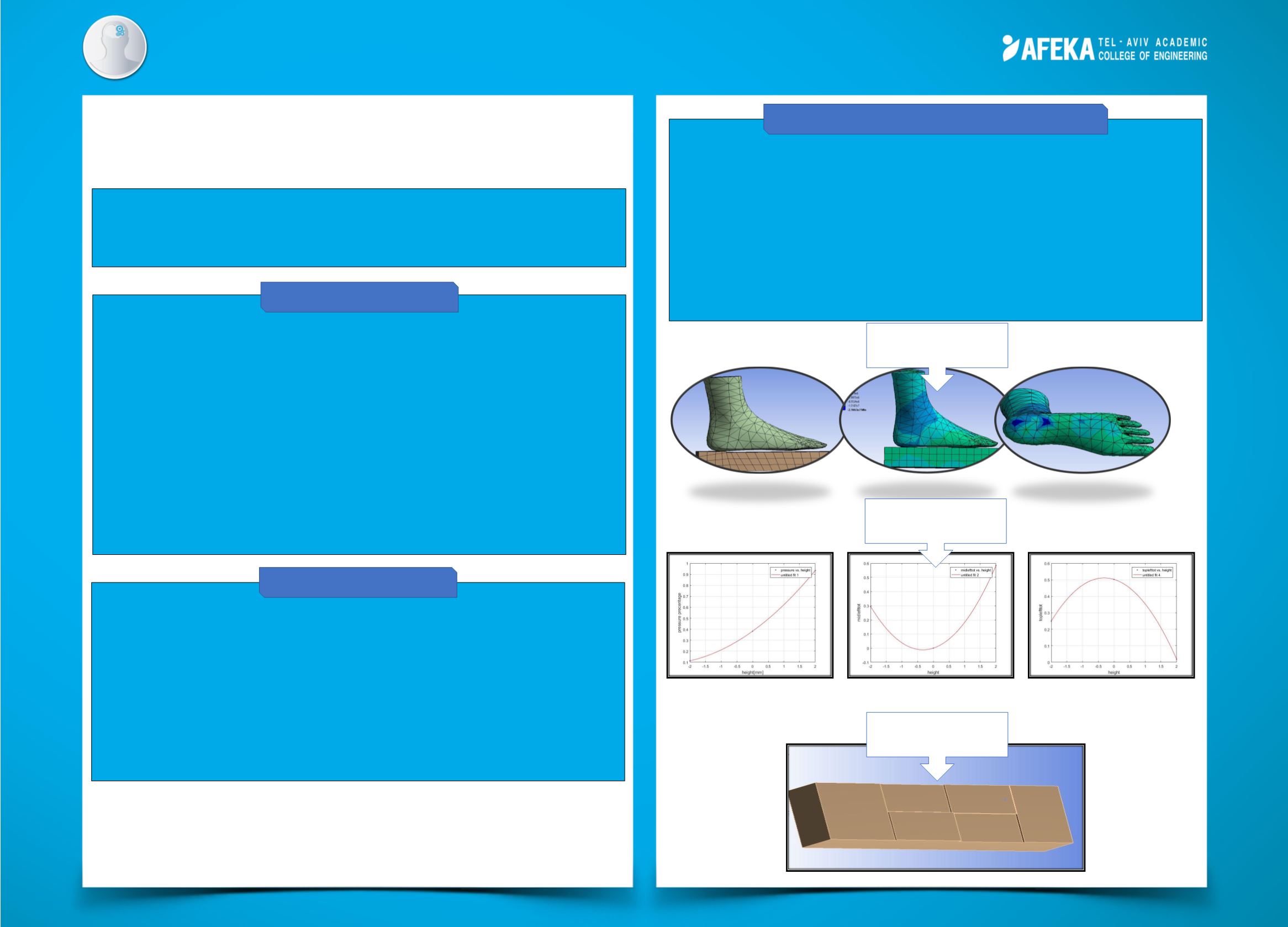

Method for creating custom made insoles based
on pressure simulations
Jonathan Porat
Advisor: Assaf Gur
Medical Engineering
The project’s essence is to design a new method of
creating custom made insoles based on plantar
pressure measurements taken from simulations.
As of today, many of the insole manufacturers create are based on
geometric dimensions only, by using the foam method or the
plaster casting method. These methods do not provide any
adjustments based on the patient’s plantar pressure and seem to
be outdated compared to today’s technological advancements.
The aim of the project is to design an enhanced theoretical insole.
The insole’s dimensions will be based on optimizing, as much as
possible, the patient’s planter pressure, as compared to the
pressure distribution over healthy feet.
Summary
In order to decide the dimensions of the insole based on pressure
simulations, we needed to know what is the standard plantar
pressure distribution of healthy people. We were able to find these
values in a study conducted with 92 healthy participants. The
participants’ plantar pressure measurements were then averaged
and normalized to percentages of total weight. We are going to use
these average values of different points of the feet to help us decide
what height different locations of the insole should have.
Literature Values
We obtained a model of a human foot that would be the patient in
our simulations. Then, based on 11 different simulation where we
changed the height of different locations under the foot, we were
able to extract pressure measurements and use them in an
algorithm that finds the correlation between the height of the platform
and the pressure on the feet. Once we have this correlation we can
decide what are the heights required at each point in order to get the
wanted values of pressure.
Simulations and algorithm
Simulations
Correlation
Result
















